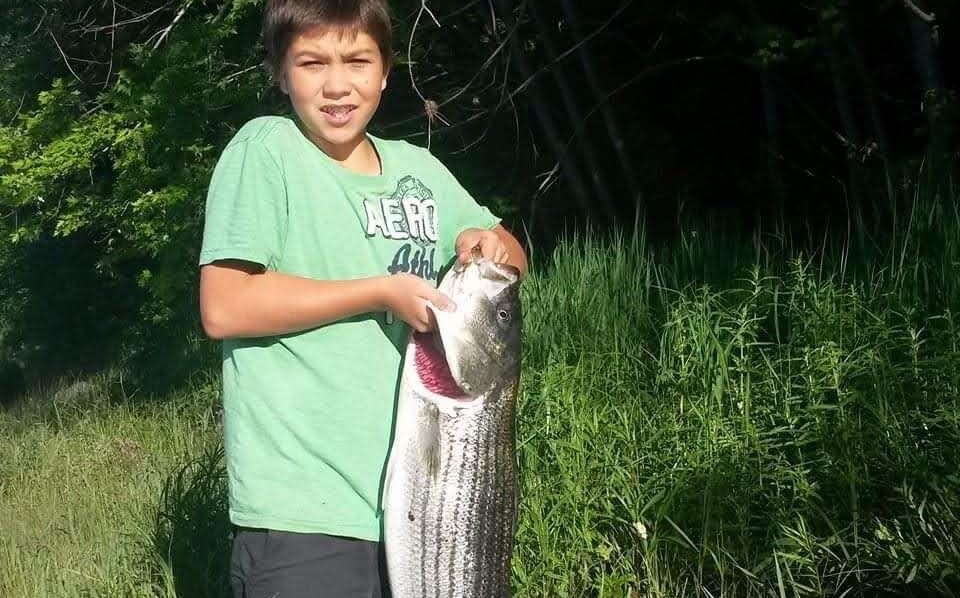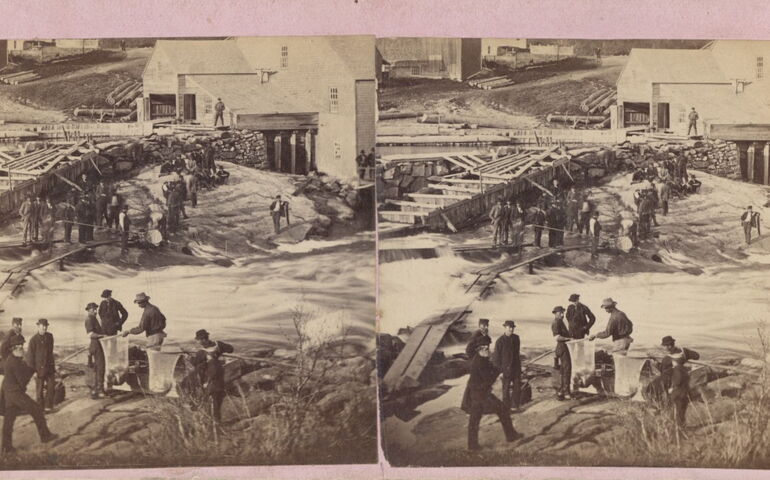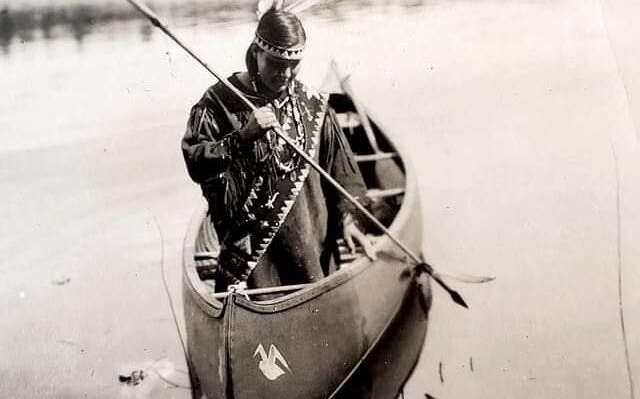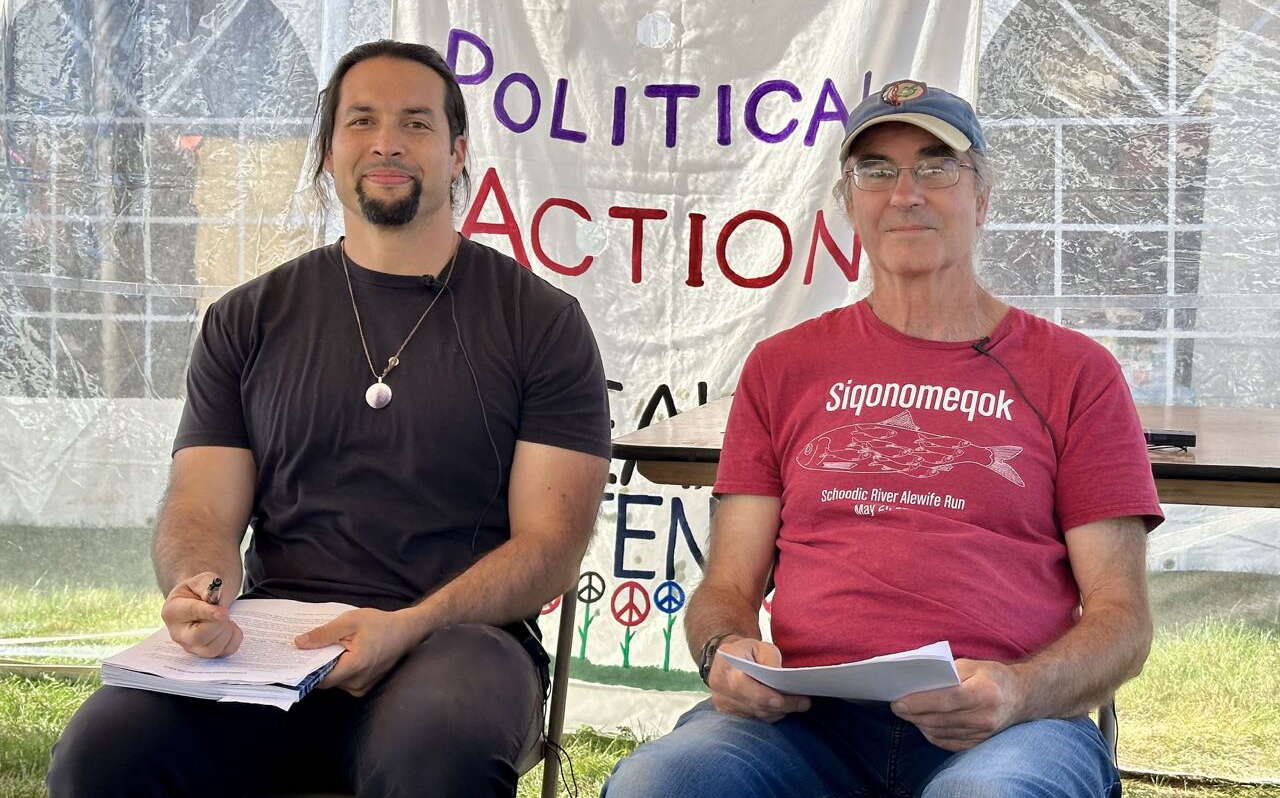
Indigenous Peoples’ Day audiobook launch examines Wabanaki access to sea-run fisheries
 Photo / Courtesy Maine Indian Tribal-State Commission
A historical photo shows people catching sea-run alewives in net bags.
Photo / Courtesy Maine Indian Tribal-State Commission
A historical photo shows people catching sea-run alewives in net bags.
Timed to coincide with Indigenous Peoples’ Day on Oct. 13, the Maine Indian Tribal-State Commission will hold an event to announce and celebrate the launch of an audiobook that looks at the impact of policies on fishing practices.
The audiobook, “Sea Run: A Study Regarding the Impact of Maine Policies on the Quality and Quantity of Traditional Tribal Fish Stocks and Sustenance Practices," examines factors that have limited and continue to block tribal peoples’ access to the fisheries and contributed to the severe decline in the fisheries themselves, and offers recommendations for their revitalization.
“Sea Run” was co-authored by Judd Esty-Kendall and Anthony Sutton, a citizen of the Passamaquoddy Tribe and a professor at the University of Maine.

The audiobook, narrated by Wabanaki citizens, brings the story to life.
The event is scheduled for 10 a.m. at the Veazie Salmon Club at 30 Old County Road in Veazie.
Sustenance fishing
Attendees will include representatives from the independent inter-governmental commission, Wabanaki leaders, municipal and state officials, representatives of non-government organizations and people passionate about sustenance fishing, Wabanaki sovereignty and enhancing sea-run fish populations.
There will be an opening song by Passamaquoddy citizen Lauren Stevens and an excerpt of the audiobook.
The event is designed to announce the availability of the audiobook as well as printed versions of the “Sea Run” report to expand public knowledge of its research and recommendations.

People committed to attend include Penobscot Nation Chief Kirk Francis, former Penobscot Nation Ambassador and current Wabanaki Alliance Executive Director Maulian Bryant, Mi'kmaq Nation Tribal Councilor John Ouellette, Maine Secretary of State Shenna Bellows, state Sen. Rick Bennett, state Rep. Laurie Osher and former Penobscot Nation Tribal Councilor and current Old Town City Councilor Charlene Virgilio.
The co-author of the report, Judd Esty-Kendall, will be the principal speaker to explain the research, findings and report recommendations.
Severe decline
Veazie Salmon Club is the site of a key dam removal on the Penobscot River that allowed for the passage of sea-run fish.
For thousands of years preceding European contact, Wabanaki people were sustained by massive populations of sea-run fish in Maine’s rivers, according to a news release.
Sea-run species such as Atlantic salmon and alewives inhabit Maine waterways for at least part of their life cycle, John Dieffenbacher-Krall, a consultant for the commission, told Mainebiz.

Brought to life through the voices of individual Wabanaki tribal citizens, “Sea Run” examines the factors that limited tribal people’s access to the fisheries and contributed to the severe decline in the fisheries themselves, and offers recommendations for their revitalization.
Already, dozens of people have RSVP’d for the event and dozens more are expected, he noted.
The audio format will be available for download on Oct. 13 on the Maine Indian Tribal-State Commission website.










0 Comments